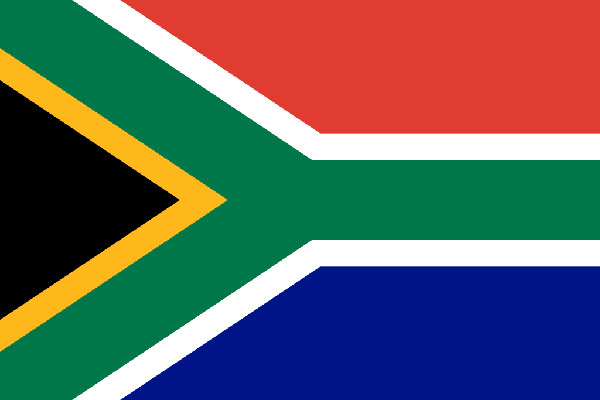RECONCILIATION DAY (ACT)
When is Reconciliation Day (ACT) in 2026?
Reconciliation Day (ACT) in 2026 is on the Friday, 1st of May (5/01/2026).
Reconciliation Day (ACT) is on the 121nd day of 2026. There are 244 days left in the year.
Reconciliation Day (ACT) Facts
- Date: May 01, 2026
- Regional
- Also Called: Fanily and Community Day
- Celebrations: Celebrations; parades, workshops, kids’ amusement
 iImage Credit: Wikipedia
iImage Credit: Wikipedia
Australian Capital Territory is the first state in Australia to celebrate a public holiday dedicated to the indigenous people. Reconciliation Day was founded to honour the native Australian culture as well as promoting cultural exchange. The first Reconciliation Day was celebrated on May 28, 2018. This was after the Indigenous affairs minister presented a bill to the legislature Assembly to have a day celebrating the Australian culture. The law was passed and Reconciliation Day became a public holiday thus replacing the Family and Community Day which was observed in September.
History of Reconciliation Day
The Reconciliation Day history can be traced back to 1967 during the Australian Referendum. The referendum aimed at removing clauses in the constitution that discriminated against the indigenous Australian groups, Aborigines and Torres Strait Islanders. One of the clauses denied the indigenous groups citizenship because they were not to be included during the Australian census. On 27th May 1967, over 90% of Australian citizens voted in favour of amending the constitution and getting rid of the discriminatory clauses.
Earlier in the late 1950s, there was a rise in civil rights activism as most Australians aimed at ending this injustice and instead work towards reconciling the country’s ethnic groups. It is this activism that initiated the 1967 referendum. The outcome of the referendum constituted a victory for the indigenous Australian civil rights and the Aborigines and Torres Strait Islanders were included in the official national census.
Today, the Australian Capital Territory celebrates Reconciliation Day on the first Monday of May to commemorate this victory. Reconciliation Day also marks the beginning of a weeklong observance of the National Reconciliation week which was first celebrated in 1996.
How to Celebrate Reconciliation Day
Reconciliation Day aims at giving an opportunity for the indigenous and non-indigenous Australians to reconcile with each other. This is, therefore, the perfect time to bury any hatchet you have had with persons belonging to the indigenous or non-indigenous community. Make it an ongoing process where you forgive each other, resolve the wrongs and move forward together.
You can also attend the Reconciliation in the Park event. The fun-filled event is a great day out for the entire family. Some of the activities during the event include live music from celebrated Australian artists, performances from the indigenous communities, kids’ amusements activities. Bush tucker talks among others.
You can also spearhead reconciliation workshops in schools, workplaces, and communities across Canberra. Let everyone in these institutions understand the importance of reconciling and embracing everyone despite their ethnic background. It is sad that some members of the Aborigines and Torres Strait Islanders are often treated as foreigners in their own country.
Remember to use the power of social media and share a message about Reconciliation Day by using the hashtag #ReconciliationDay.
Why Celebrate Reconciliation Day
Recnciliation Day helps us appreciate and embrace the Aborigines and Torres Strait Islanders people as part of the Australian citizens. These indigenous Australians experience vast inequalities in terms of access to health care, education, the standard of living, and employment. Although these communities have a high birth rate, their life expectancy is very low putting them at risk of extinction. The primary cause of death of indigenous Australians is assault, suicide, and chronic diseases such as heart conditions, liver diseases, diabetes, respiratory illnesses, and lung cancer. Celebrating Reconciliation Day is the first step in understanding these inequalities and helping these people get a better living.
Interesting Facts about the Indigenous Australians
- Approximately 145 native languages are spoken in Australia while 110 languages are at the risk of extinction.
- The English words kangaroo, koala, dingo, barramundi, and wombat have their origin from Aboriginal languages.
- Waterholes, rock arts, and burial grounds are some of the sacred sites of the Aboriginal people.
- The Aborigines and Torres Strait Islanders are the oldest living creatures in the world. They date back to over 50000 years.
- Almost 35% of the Aborigines and Torres Strait Islanders live in major cities while 13.7% live in very remote areas.
- The Aborigines and Torres Strait Islanders were granted the right to vote in 1962
Reconciliation Day (ACT) Observances
- Mon
- Jun 01, 2020
- Mon
- May 31, 2021
- Mon
- May 30, 2022
- Mon
- May 29, 2023
- Mon
- May 27, 2024

